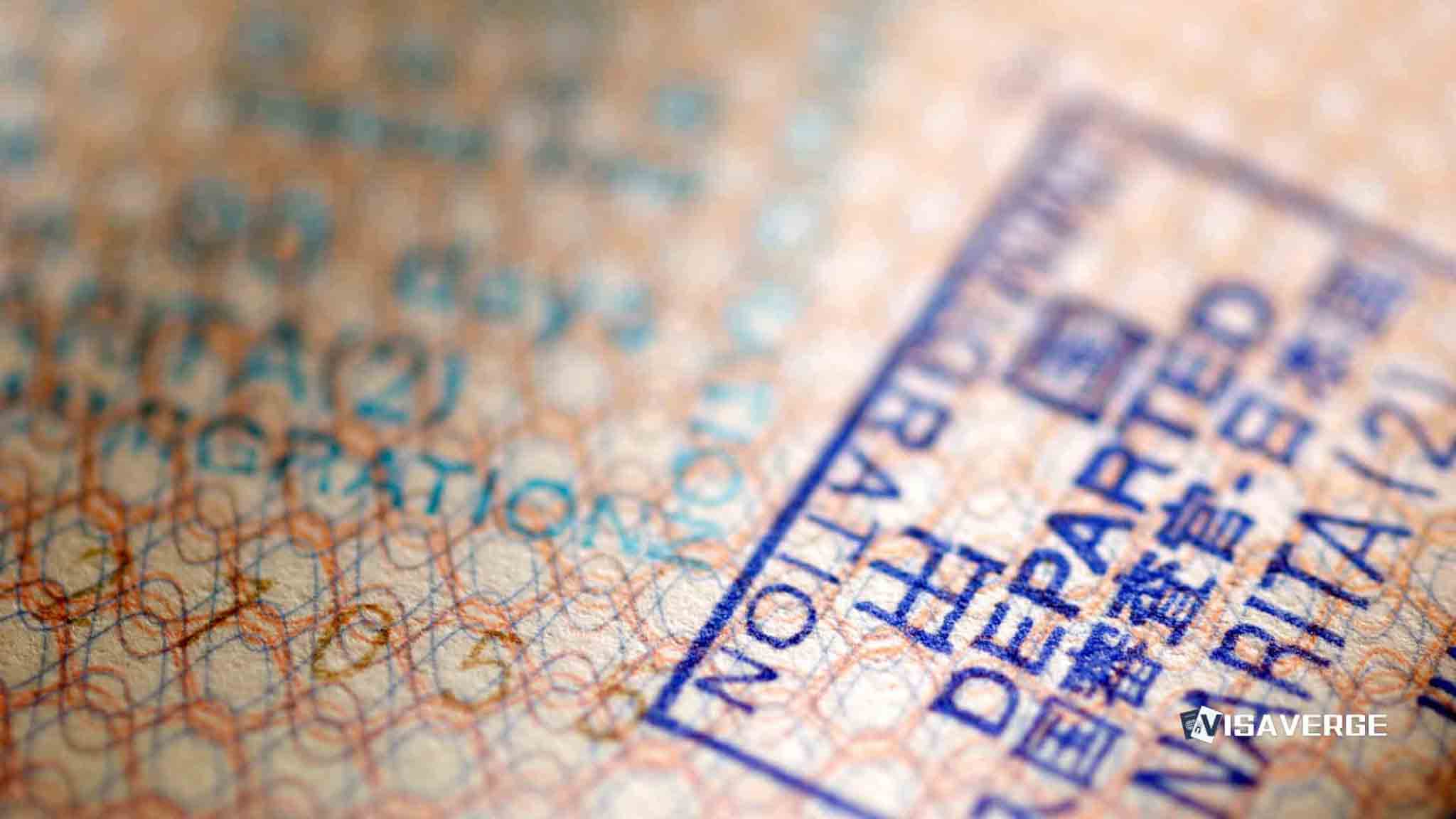Key Takeaways
• Alabama’s minimum wage remains $7.25 hourly for non-tipped workers in 2025, unchanged since 2009.
• Tipped employees earn $2.13 hourly plus tips; total pay must meet $7.25 minimum wage.
• No state-specific wage law exists; Alabama relies entirely on federal minimum wage rules.
Alabama’s Minimum Wage in 2025: What Immigrants, Workers, and Employers Need to Know
As of July 2025, Alabama continues to follow the federal minimum wage, which is $7.25 per hour for non-tipped employees. This policy affects thousands of workers, including immigrants and newcomers who often fill entry-level jobs across the state. With no state-specific minimum wage law, Alabama’s approach stands out in a national landscape where many states have raised their minimum wages above the federal level. Here’s a detailed look at what this means for workers, employers, and the broader community.

Who Is Affected and Why It Matters
Who: All workers in Alabama, especially those in low-wage jobs, including many immigrants and newcomers to the United States 🇺🇸, are directly affected by the minimum wage policy. Employers, particularly in industries like hospitality, food service, and retail, must also comply with these rules.
What: The minimum wage is the lowest hourly pay that employers can legally give their workers. In Alabama, this is set by the federal government because the state does not have its own minimum wage law.
When: The current rate of $7.25 per hour has been in place since 2009 and remains unchanged for 2025.
Where: This applies to all workplaces in Alabama, from Birmingham to Mobile and everywhere in between.
Why: Alabama’s lawmakers have chosen not to set a higher state minimum wage, so the federal rate applies. This decision impacts the daily lives of workers, especially those earning the least.
How: Employers must pay at least $7.25 per hour to non-tipped employees. For tipped workers, the rules are different, but the total pay (wages plus tips) must still reach at least $7.25 per hour.
Detailed Breakdown of Minimum Wage Rates in Alabama
Understanding the minimum wage rules in Alabama is important for both workers and employers. Here’s how the rules break down for different types of employees:
Non-Tipped Employees
- Hourly Rate: $7.25 per hour
- Who qualifies: Most workers who do not regularly receive tips, such as cashiers, cleaners, and factory workers.
- Key point: This is the same as the federal minimum wage. Alabama does not set a higher rate.
Tipped Employees
- Hourly Rate: $2.13 per hour
- Who qualifies: Workers who regularly receive more than $30 per month in tips, such as restaurant servers and bartenders.
- Important rule: If tips plus the $2.13 wage do not add up to at least $7.25 per hour, the employer must make up the difference.
- Example: If a server only earns $4 in tips during an hour, their total pay would be $6.13 ($2.13 wage + $4 tips). The employer must then pay an extra $1.12 to reach the $7.25 minimum.
Employees Under 20 Years Old
- Special rule: For the first 90 days of employment, workers under 20 can be paid a minimum wage of $4.25 per hour.
- After 90 days: The pay must increase to at least $7.25 per hour.
Full-Time Students
- Sub-minimum wage: Some full-time students may be paid less than the standard minimum wage, depending on their job and employer.
- Typical rates: Between 75% and 85% of the regular minimum wage.
- Who qualifies: Students working part-time in certain jobs, such as at their school or in specific training programs.
Certain Disabled Workers
- Special certificates: Employers can apply for permission to pay some workers with disabilities less than the minimum wage.
- Who approves: The Alabama Department of Labor must issue a certificate for this to be legal.
Overtime Pay Rules
- Standard: Non-exempt employees must receive overtime pay for hours worked over 40 in a week.
- Overtime rate: $10.88 per hour (1.5 times the minimum wage).
- Who qualifies: Most hourly workers, unless they are exempt under federal rules.
No State-Specific Minimum Wage Law
Alabama is one of only a few states that does not have its own minimum wage law. Instead, it relies completely on the federal minimum wage set by the U.S. Department of Labor. This means:
- No automatic increases: The minimum wage will not go up unless the federal government raises it.
- No local changes: Cities and counties in Alabama cannot set their own minimum wage rates. In 2016, state lawmakers passed a law blocking local governments from doing so.
For more details on federal minimum wage rules, you can visit the U.S. Department of Labor’s official minimum wage page.
Recent Developments and Policy Status
As of July 2025, there have been no changes or increases to the minimum wage in Alabama. The last time the federal minimum wage was raised was in 2009, when it went from $6.55 to $7.25 per hour. Since then, efforts to increase the minimum wage in Alabama have not succeeded.
- 2019 proposal: There was a bill to raise the minimum wage to $15 per hour by 2024, but it did not pass.
- No scheduled increases: There are no plans or announcements for a higher minimum wage in 2025.
Why Alabama’s Minimum Wage Policy Matters
For Immigrants and Newcomers
Many immigrants and newcomers to Alabama work in jobs that pay at or near the minimum wage. These jobs are often in restaurants, hotels, cleaning services, and agriculture. Because Alabama’s minimum wage is the same as the federal rate, these workers may find it harder to keep up with the cost of living, especially as prices for rent, food, and transportation rise.
- Budgeting challenges: With $7.25 per hour, a full-time worker earns about $15,080 per year before taxes. This can make it hard to afford basic needs, especially for families.
- Limited upward mobility: Without increases in the minimum wage, workers may have fewer chances to improve their income unless they move to higher-paying jobs.
For Employers
Employers in Alabama must follow federal wage laws. This means:
- Compliance is key: Employers must pay at least $7.25 per hour to non-tipped employees and ensure tipped workers’ total pay meets the minimum.
- Record-keeping: Employers must keep accurate records of hours worked and wages paid.
- Penalties: Failure to pay the correct wage can result in fines, back pay, and other penalties.
For Policy Makers
Policy makers in Alabama have debated whether to raise the minimum wage, but so far, no changes have been made. They must consider:
- Economic impact: Raising the minimum wage could help workers but might increase costs for small businesses.
- Political factors: Decisions about wage laws often reflect broader debates about the role of government in the economy.
How Alabama Compares to Other States
Many states have set their own minimum wages higher than the federal rate. For example:
- California 🇺🇸: $16.00 per hour (as of 2025)
- Florida: $13.00 per hour (scheduled to rise to $15.00 by 2026)
- Georgia: Also follows the federal minimum wage, like Alabama
Because Alabama has not set its own rate, it remains at the bottom of the national wage scale. This can make it less attractive for workers seeking higher pay, but some employers argue it helps keep business costs down.
Special Considerations for Tipped Employees
Tipped employees, such as restaurant servers, have a different minimum wage. They are paid $2.13 per hour by their employer, but their total pay (including tips) must reach at least $7.25 per hour.
- Employer responsibility: If tips are low, the employer must make up the difference.
- Common jobs: Waiters, bartenders, hotel staff, and delivery drivers often fall into this category.
- Potential issues: Some workers may not always receive enough tips, making it important for them to track their total earnings.
Sub-Minimum Wages: Who Qualifies and How It Works
Some groups can legally be paid less than the standard minimum wage in Alabama:
Young Workers (Under 20)
- First 90 days: Can be paid $4.25 per hour.
- After 90 days: Must be paid at least $7.25 per hour.
Full-Time Students
- Part-time work: May be paid 75% or 85% of the minimum wage, depending on the job.
- Purpose: This rule is meant to help students find work while in school.
Workers with Disabilities
- Special certificates: Employers can apply for permission to pay less than the minimum wage to workers with certain disabilities.
- Oversight: The Alabama Department of Labor must approve these arrangements.
Overtime and Other Protections
Workers in Alabama are also protected by federal overtime rules:
- Overtime pay: 1.5 times the regular wage for hours worked over 40 in a week. For minimum wage workers, this is $10.88 per hour.
- Who qualifies: Most hourly workers, unless they are exempt (such as some managers or professionals).
What Should Workers Do If They Are Not Paid Properly?
If you are a worker in Alabama and believe you are not being paid the correct minimum wage or overtime, you have options:
- Talk to your employer: Sometimes, mistakes can be fixed quickly.
- Contact the Alabama Department of Labor: They can help explain your rights and investigate complaints.
- File a complaint with the U.S. Department of Labor: The federal government can also help enforce wage laws.
You can find more information and file complaints through the Alabama Department of Labor’s official website.
The Debate Over Raising the Minimum Wage
The question of whether to raise the minimum wage in Alabama is ongoing. Supporters argue that higher wages would help workers afford basic needs and reduce poverty. Opponents worry that it could lead to job losses or higher prices for consumers.
- Past efforts: Bills to raise the minimum wage have been introduced, but none have passed.
- National context: Many states and cities have raised their minimum wages in recent years, but Alabama has not.
Expert Analysis and Advice
Analysis from VisaVerge.com suggests that workers and employers in Alabama should pay close attention to federal wage laws, since the state does not set its own rules. Immigrants and newcomers, in particular, should make sure they understand their rights and keep records of their hours and pay.
- Stay informed: Watch for any changes to federal wage laws that could affect your pay.
- Know your rights: If you are paid less than the minimum wage, you can take action.
- Employers: Make sure you are following all federal rules to avoid penalties.
Practical Tips for Workers and Employers
For Workers
- Track your hours: Keep a record of when you work and how much you are paid.
- Check your pay stubs: Make sure you are being paid at least $7.25 per hour if you are a non-tipped employee.
- Ask questions: If you are unsure about your pay, talk to your employer or contact the Alabama Department of Labor.
For Employers
- Review your payroll: Make sure all employees are paid at least the federal minimum wage.
- Understand special rules: Know the rules for tipped employees, young workers, students, and workers with disabilities.
- Keep good records: Accurate records can help avoid problems if there is a complaint.
Looking Ahead: The Future of Minimum Wage in Alabama
As of July 2025, there are no plans to raise the minimum wage in Alabama. However, the debate is likely to continue, especially as the cost of living rises and more states raise their own minimum wages.
- Possible changes: Any increase would likely come from the federal government, unless Alabama lawmakers decide to act.
- Stay updated: Workers and employers should watch for news about possible changes to wage laws.
Conclusion: What This Means for You
Alabama’s minimum wage for 2025 remains at $7.25 per hour for non-tipped employees, with special rules for tipped workers, young employees, students, and some workers with disabilities. There are no current plans to raise the wage, so both workers and employers must follow federal rules.
For immigrants and newcomers, understanding these rules is important for making informed decisions about work and pay. Employers should ensure full compliance to avoid penalties and support fair workplaces.
For more information, visit the U.S. Department of Labor’s minimum wage page or the Alabama Department of Labor.
By staying informed and knowing your rights, you can better protect yourself and your family in Alabama’s changing job market.
Learn Today
Minimum Wage → The lowest hourly pay allowed by law that employers must pay their employees.
Tipped Employees → Workers who earn tips regularly and receive a lower base hourly wage legally.
Non-Exempt Employees → Workers eligible for overtime pay under federal wage and hour laws.
Overtime Pay → Additional pay at 1.5 times regular wage for working beyond 40 hours per week.
Sub-Minimum Wage → A wage lower than the standard minimum, allowed for certain groups like youth or disabled workers.
This Article in a Nutshell
Alabama’s 2025 minimum wage remains federally set at $7.25 per hour, affecting many immigrant workers. Tipped employees receive $2.13 hourly plus tips. No state law overrides federal rules. Employers must comply, while debates continue about raising wages amid growing living costs and regional wage differences.
— By VisaVerge.com








